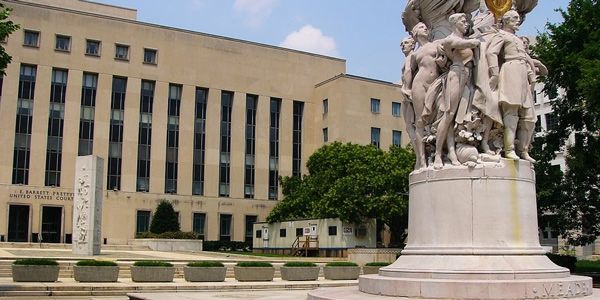FERC has asked the D.C. Circuit Court of Appeals to give it 90 days to respond to the court’s June 30 order barring the commission’s use of tolling orders to delay judicial review of its rulings under the Natural Gas Act.
The commission’s motion Monday said the delay would give it time to respond to the order overturning “the commission’s decades-old, judicially sanctioned rehearing process” and consider whether to seek a review by the Supreme Court.
The court ordered its clerk to issue a mandate in the case on Tuesday, but the court had not filed the mandate nor responded to FERC’s motion as of late that afternoon. “We have nothing for you at this time,” commission spokeswoman Mary O’Driscoll said.
No More Stopping the Clock
The D.C. Circuit’s 10-1 ruling concluded that FERC’s use of tolling orders to stop the 30-day clock for acting on rehearing requests improperly prevents litigants from appealing commission rulings indefinitely even as it allows gas pipeline companies to seize property under eminent domain and begin construction (Allegheny Defense Project, et al. v. FERC, 17-1098). (See D.C. Circuit Rejects FERC on Tolling Orders.)
The court said it had erred since 1969 when it first ruled that issuing a tolling order meant that FERC had “acted upon” the request under the language of the NGA and that parties must wait until the commission’s review of the request is complete before seeking judicial relief.
FERC routinely issues tolling orders to buy itself more time to consider rehearing requests because both the NGA and the Federal Power Act deem such requests denied if it does not act on them within 30 days.
In the face of increased criticism of its use of tolling orders, FERC on June 9 issued a rulemaking saying it will no longer permit gas pipeline developers to begin construction until it acts on the merits of any rehearing requests (Order 871, RM20-15). (See FERC Revises Pipeline Policy on Landowner Concerns.)
The new rule followed Chairman Neil Chatterjee’s September 2019 pledge that FERC would seek to reduce tolling orders and act on landowner rehearing requests within 30 days. In February, the chairman announced the creation of a new rehearing section within the Office of the General Counsel to expedite action.
In its motion, however, FERC noted that the impact of the court’s June decision “extends well beyond landowner cases and affects all requests for rehearing under the Natural Gas Act and presumably those under the Federal Power Act as well.”
It said tolling orders “allow the commission to manage its large case load,” noting the commission averages more than 1,100 orders and 285 rehearing requests annually.
Circuit Split?
FERC said it needed time to analyze the court’s conclusion that while an order granting rehearing solely for the purpose of further consideration does not prevent a rehearing request from being deemed denied, the NGA does not require the commission to resolve the merits of rehearing requests within 30 days. The court wrote that the NGA’s reference to acting on a rehearing request requires “some substantive engagement with the application” but not necessarily a “deci[sion] [on] the rehearing application.”
The court declined, however, to address whether FERC could issue interim orders that grant rehearing for further consideration coupled with a request for supplemental briefing or further hearing processes.
“A stay of the court’s mandate would afford the commission time to consider how to revise its processes and allocate its resources so that it can fulfill its statutory role on rehearing in the absence of these interim orders,” FERC said.
The commission said the D.C. Circuit previously read the act as requiring it to actually decide the merits of rehearing requests within 30 days. “In addition, every other court of appeals to consider the issue has determined that the term ‘act’ encompasses tolling orders that grant rehearing for further consideration,” FERC said.
It noted Judge Karen LeCraft Henderson’s dissent, which said the decision “creates a circuit split that could force the Supreme Court to weigh in.
“Whether the court’s conclusion as to the plain language of Natural Gas Act Section 717r(a) warrants Supreme Court review is something that the commission and the solicitor general will need time to consider without the added burden of the court’s decision immediately taking effect,” FERC said.
A stay would not harm rehearing petitioners because of its commitment to bar construction during the rehearing process and because district courts can hold eminent domain proceedings in abeyance while rehearing is pending, it said.
In addition to filing the motion for more time, FERC also is seeking a legislative response to the order. On July 2, Chatterjee, a Republican, and Commissioner Richard Glick, a Democrat, issued a statement asking Congress “to consider providing FERC with a reasonable amount of additional time to act on rehearing requests involving orders under both the Natural Gas Act and the Federal Power Act.”



